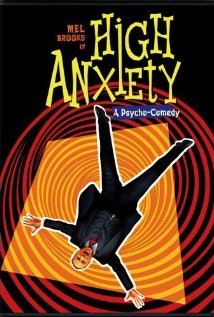
All human beings deal with anxiety on some level or another; it is perfectly natural to feel afraid at times. On the other hand, sometimes these feelings can get out of control and distract you from what you’re actually trying to do. A perfect example is when you sit down to take an exam or standardized test, and without warning your mind—which you may well have spent the last four months jamming full of every fact and figure you could find—goes suddenly blank. As a GRE and GMAT tutor, I’ve heard countless tales of test anxiety from my students, and that’s why I always make sure to fold a healthy amount of psychological prep into my 1 on 1 tutoring sessions. Today, I’m going to tell you about my favorite tactic: breath control.
As students, most of us deal with anxiety during exam time and also during crunch time. The anxiety can be very distracting and detrimental to performance. To understand how, consider that a person’s awareness is like a jar, which can only be filled with so much stuff. When you put the fear of failure in it (which is what test anxiety boils down to), you have that much less room to dedicate to the task at hand (your exam).
The worst thing about anxiety is just how unproductive it is: you won’t gain anything by focusing on the fear of failure except ever-increasing amounts of fear, and you will only manage to stress yourself out without accomplishing anything. Instead you have to focus on the task at hand and deal with it as best you can in that moment. Most of us exist between these two extremes, but all of us would benefit by being more focused on the task at hand.
This ability can be developed using—trust me on this—breathing meditation. If you train yourself to regularly sit down for say, 15-20 minutes, and completely absorb your awareness in your breath, you are training your mind to focus on what you want to focus on, while keeping everything else out.
When you first begin, you will find that your mind wanders away from your breath quite often; these are unwanted diversions. Learn to drink in the sensations of the breath and become absorbed in them; the feeling of air flowing past your nose and throat…the expansion and contraction of your chest…there is actually a lot going on and you can focus on any detail you choose—the sound of your heart, the light behind your eyelids, the rise and fall of your ribs. Become more aware and more in tune with these sensations and even become engaged in them, actively breathing the way you want to.
Realize that your breath is yours and you can control it. Breathe in a deep, pleasurable manner. Open your breath and set its rhythm to suit yourself. Feel free to experiment a little with variations to actually find what you like in the breath (it may not always be the same and may even fluctuate in a session). Once you reach a state of focus, you will feel very calm, as all worry has left you. Just stay in that place for as long as you like and enjoy it. This feeling is the feeling of being in the moment, of being calm and focused, of being fearless and happy.
Learn to go into this frame of mind and you will be able to bring it about during exam time and crunch time. You might even try meditating for a few minutes before your test. No matter how difficult the circumstances, you will be able to remain calm and focused and do the best you can in that situation.

Comments